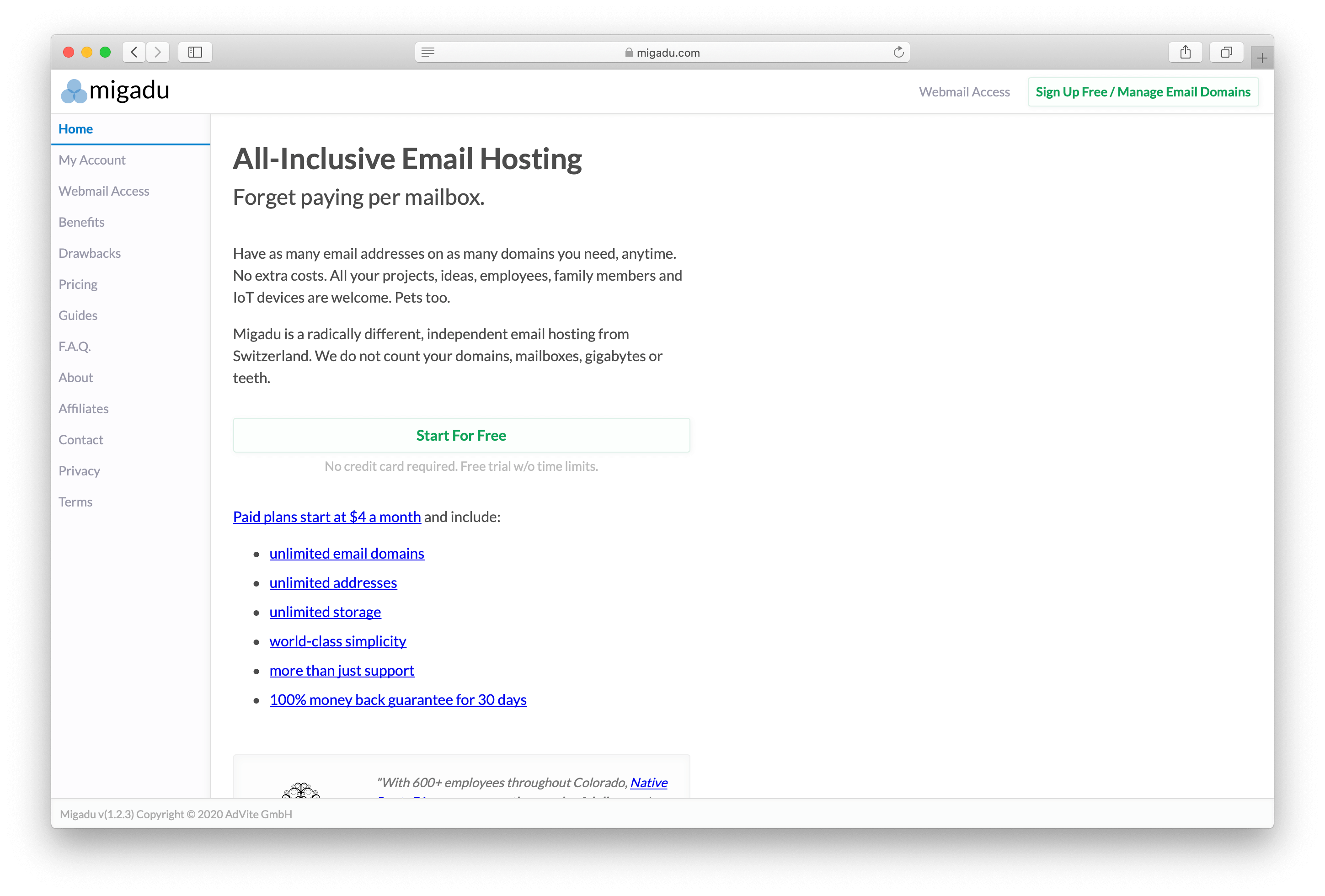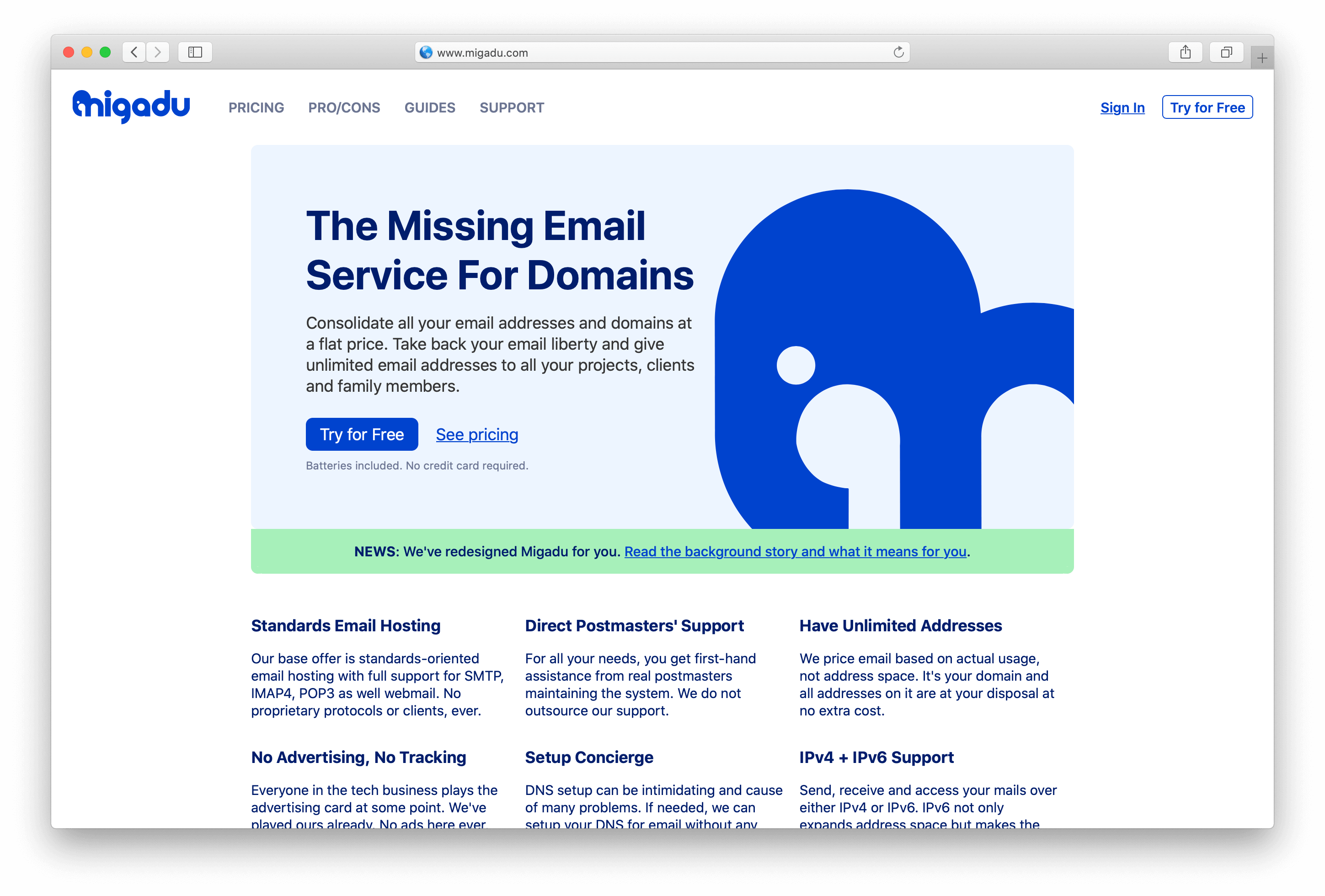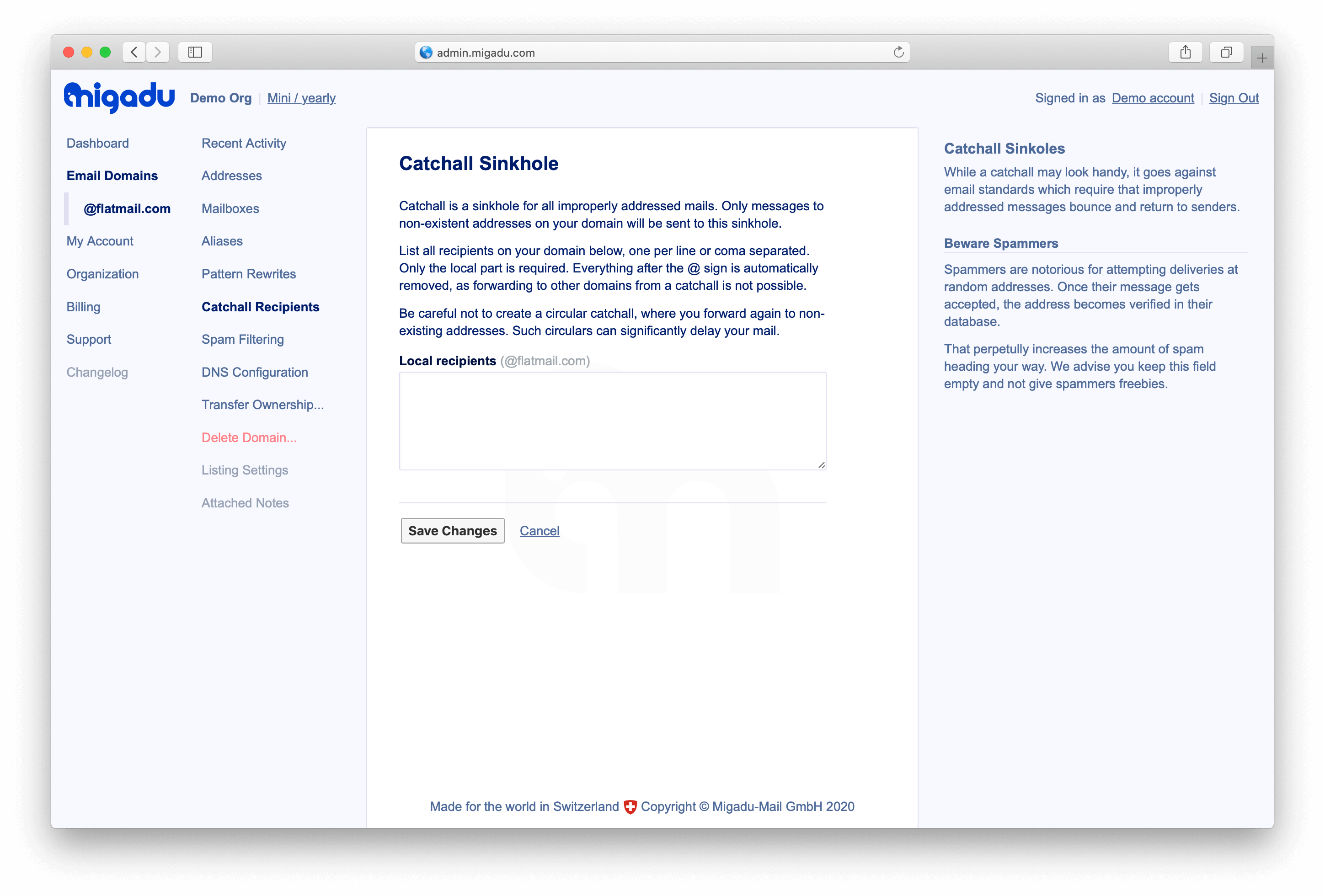Little Goes Long Way
Being bootstrapped we never paid too much attention to branding. Logo? Well, just throw in some Venn diagrams in there. Color? Well, just pick one. Name? Uh…Blame Michael . Our focus was always the email service.
Our team is of mostly opinionated developers and system administrators which makes for certain geeky attitudes. We dislike influencing, bragging, advertising, social networks, selfies as well anything self-promoting that screams “me, me, me” as it has become norm today.
Our core ideology as of founding was to forget business-as-usual and make our service about “you, you and you”, our users.
Our users however helped us realize there is a gap in what we believe and how we present our ideas. This is a visual world and we saw the need to embed our values in our visual representation.
The Logo
Contrary to our initial ignorance of the Migadu logo, we decided to spend significant thoughts on the new logo. We wanted it to embed our values, our world view as well user dedication.
We asked help from the talented designer Stevan Rodić on whose idea we iterated further internally.
It’s an elephant! Our kids were fast to this conclusion, but there is more there than it meets the eye. Yes, it is a letter M, as in Migadu, as well M as in eMail.
The eye of the elephant and the negative space under the eye form a silhouette of a bowing person. The negative space between the legs represents a door.
Migadu offers email hosting. We are your humble host. We bow to welcome you to our house and our services. Welcome to Migadu.
Why an elephant though? Elephants are respectable animals and symbols of strength, power, wisdom, loyalty, intelligence, determination and patience. When we started Migadu, we knew we will be the underdog in a market literally owned by few heavyweights.
It takes a certain level of determination to operate an email service today.
The Public Site
Our public website has not changed in a while. We often got comical queries asking if we were still alive as a service due to this. However, we did not want to confuse movement with progress. Our work was always behind these pages and we avoided making changes unless required.

Today we are a very different service than the one we launched with. Not only in stability, robustness, security, but also in the amount of active users, employees and maturity. It was time to reflect the progress also onto our public pages, remaining the minimalistic soul of Migadu.
The new public site emphasizes our logo, our ideology and unique offering. It remains text heavy and power-user oriented.

The content on the site is still scarce and more will be released over the upcoming days, mostly in the area of guides and documentation. Going forward, our main site will be less static and more of a communication medium for our activities.
No Analytics or Tracking
While we previously had used Google Analytics on our public pages, we have never looked at results. At the time we launched, this was the tool of choice and it was de-facto standard to have it in.
However we realized we do not care about that data and found it irrelevant for our mission. Our new pages include no analytics tools at all and no tracking technologies.
Just because you can get data it does not mean you should. At the end of the day, what really matters to us is the number of active users and their level of service usage.
Focus on the Users
This redesign has also lead us to a simple decision making tool. Before implementing anything, we ask ourselves, “will this benefit our users?”. If the answer is no, we simply drop the idea. Ludicrous business strategy, childish, one may say.
As we see it, problem with today’s companies, especially the Silicon Valley one’s is that they quickly forget who they serve. Egos, investors, “scaling” and “exits” misplace user needs. Not here though.
We do not see our company as a means of obtaining riches but rather as an opportunity to drive change in the world we would like to see ourselves. Money is important as means of sustainability, but it is not the most important thing. It is not what drives us. This lets us keep our integrity and remain true to our vision.
The Admin Panel
Our admin panel was opinionated from the very beginning. While it will not win any design awards, it is loved and praised by our users. That is all that matters to us anyway.

We see user experience professionals today spend more time chasing the “beauty”, “cool effects” and “pixel perfection” rather than thinking about user goals. We might be nostalgic, but we often find UI of the past decade much more useful than the ones of today.
We built the admin panel to serve users goals and nothing else. It is being optimized to get you out of the system as soon as possible, as we assume you surely have other things to do?
Our admin panel also looks like no other admin panel out there. The menu structure is meant to expose features progressively. The well known desktop pattern is called cascading list and it is sadly rarely used on the web.
We found this pattern to work well for our use case. Though it is not the prettiest one and it is text heavy, it gets you to deep functionalities within few clicks, all while keeping the context right in front of you.
Unlike other admin panels, Migadu admin panel is fully functional without JavaScript enabled. The billing pages and charts are exception for the moment.
The Webmail
We currently use Rainloop open source webmail within Migadu. However, we have found it to be buggy and difficult to maintain. Furthermore, from system administration aspects, we wanted something that is as simple as single executable. That has lead us to investing into a new open source webmail called Alps.
Instead of building Alps in-house, we have started a collaboration with SourceHut guys who set up the ground work. Simon is author and maintainer of the most complete open source Go email libraries at the moment. Instead of reinventing the wheel, we thought it is better to support existing developers who have already done the hard work in implementing essential email protocols.
The webmail source code is available on SourceHut Git repository and it will very soon receive own dedicated page. We expect to put Alps into production during September.